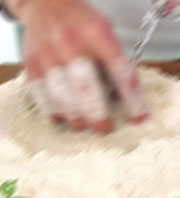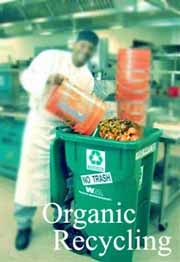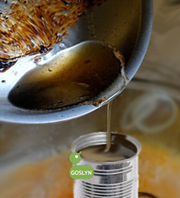FOG is Fats, Oil, and Grease from Kitchen Wastewater
FOG causes over half the Sanitary Sewer Overflows
FOG Prevention or Grease Blockages
Best Kitchen Practices - Restaurant Grease
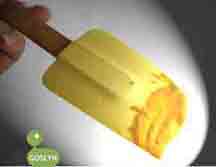
FOG Prevention Practices to avoid Grease Blockages are simple, inexpensive and easy to implement. The key factor of grease free plumbing is staff training and staff procedures. Monthly Grease Trap maintenance is very important. With today's environmental standards and green initiatives, kitchen practices must continue to evolve. This is a perpetual process. The organic recycling bin is a new device to the public as well as to the restaurant business. Waste vegetable oil disposal was an expense to the restaurant owner.
Change is constant. Dishwashers and kitchen staff are frequently inexperienced. Take the time to train new kitchen staff. Tiger Woods takes golf lessons, all restaurant staff should continue to train too. Staff and restaurant management must be dedicated to keep their workplace clean, sanitary, and productive. FOG Prevention is a mandatory procedure in a successful and socially responsible restaurant operation.
Dish & Utensil Cleaning
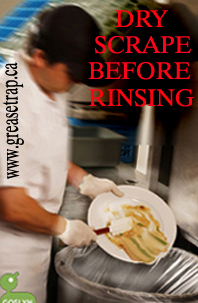
An automatic dishwasher is not magic. Dishes, plates, and cooking utensils must be pre-cleaned before they enter the automatic dishwasher. The dishwasher cleans them, but more importantly sanitizes them. All dishes and kitchen utensils must be wiped off before they enter the dishwasher.
Liquid waste contains fats, oils, and grease. Gravy, syrups, and batter should be poured into the food recycling bin. A common drain blocking problem is large food solids being rinsed off plates into the sink. Dish washing staff claim this step slows them down. The cost to have a plumber to drain snake or powerjet the grease blockage far outweighs the time taken to pre-wipe the dishes.
Check the water temperature of your automatic dishwasher. If the water is too hot, grease will flow through a passive grease trap before it cools and hardens. The temperature of the wash water to sanitize the dishes should be between 55°C to 75°C (135°F to 170°F). Water temperature that are too high will increase your restaurants monthly utility bills.
Grease Traps & Grease Interceptors
A sanitary and clean kitchen will benefit restaurants, and most importantly, the customers. Your kitchen Grease traps should be checked and cleaned monthly to ensure proper performance. Odours and drainage problems are signs that a grease trap is full, clogged, or leaking. The obvious problem is drain backups. This is very typical of food solids combined with grease build-up in the drain pipes. Grease trap pumping and cleaning should be performed by a government certified grease trap service. Don't wait for your toilets to backup and overflow.
Counter Tops, Food Prep Areas, & Mop Buckets
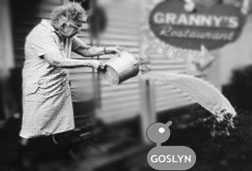
All food solids and liquid waste from counter tops, and food preparation areas must be wiped thoroughly and placed into the food recycling bin. Mops and buckets contain large quantities of grease and food solids. A common cause of grease blockages is emptying mop buckets into floor drains. Floor drains are rarely connected to grease traps.
Never pour mop water or other wastewater outside onto pavement or into ditches. The grease will drain into the storm sewer, a direct unfiltered flow to the lake.
Food Solids & Liquid Food Waste
Never Allow Food Solids and Liquid Food waste to enter the drain
Always:
- Scrape food from plates and utensils into the organic waste recycling bin before washing
- Place liquid foods into the food recycling bin. (dairy products, milkshakes, salad dressings, condiments, batters, gravy, sauces)
- Deposit waste fryer oil or cooking grease into the waste vegetable oil (WVO) bin. All restaurants with deep-fryers in Canada have a WVO bin outside.
- Clean floor mats in a mop sink, not outside as the grease will enter the storm sewer.
- Pour Grease from frying pans and cookie trays into a metal can, refridgerate until grease hardens and throw out when full
- Only run the automatic dishwasher when completely full
- Never run hot water or pour chemicals down the drain
Grease Hoods & Filters
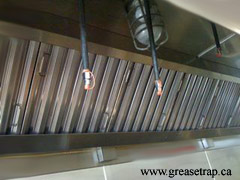
Grease Hoods are the number one cause of restaurant kitchen fires. Grraese Hoods and filters must be routinely cleaned.
Clean the filters in a sink connected to the grease trap. Some restaurants take the grease filters to a spray car wash where the filters can be power washed. Do not clean grease filters outside near a storm sewer drain. Grease and oil escape through the kitchen exhaust system accumulating on the roof. The grease and oil eventually enter the storm sewer when it rains.
Food Grinders
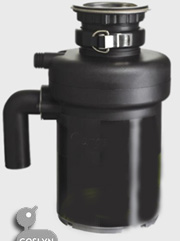
Food Grinders are appliances more common in the United States than Canada. A food grinder takes waste food solids and chops them into small particles. The food particles bypass the grease trap. Food grinders are located under the 3-compartment sink. Food Grinders and food compactors are major contributors to sewer line clogging and sanitary sewer overflows. Food waste is ground into fine particles and sent into the sanitary sewer or septic systems.
The use of a Food grinder will result in extremely high BOD and TSS counts. Food Grinders and Food Compactors are banned in Canada. (This paragraph does not refer to food preparation, food grinder appliances)

GREASE SAFETY TIP: Never use water to put out a grease fire. Never move the pot from the stove. Cover the pot with lid or dry towel & turn off the element

Unmaintained Grease Traps Have Zero Value
Dry-Scraping - Inexpensive FOG Prevention
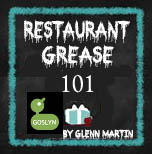 Restaurant Grease 101 PDF Download
Restaurant Grease 101 PDF Download


